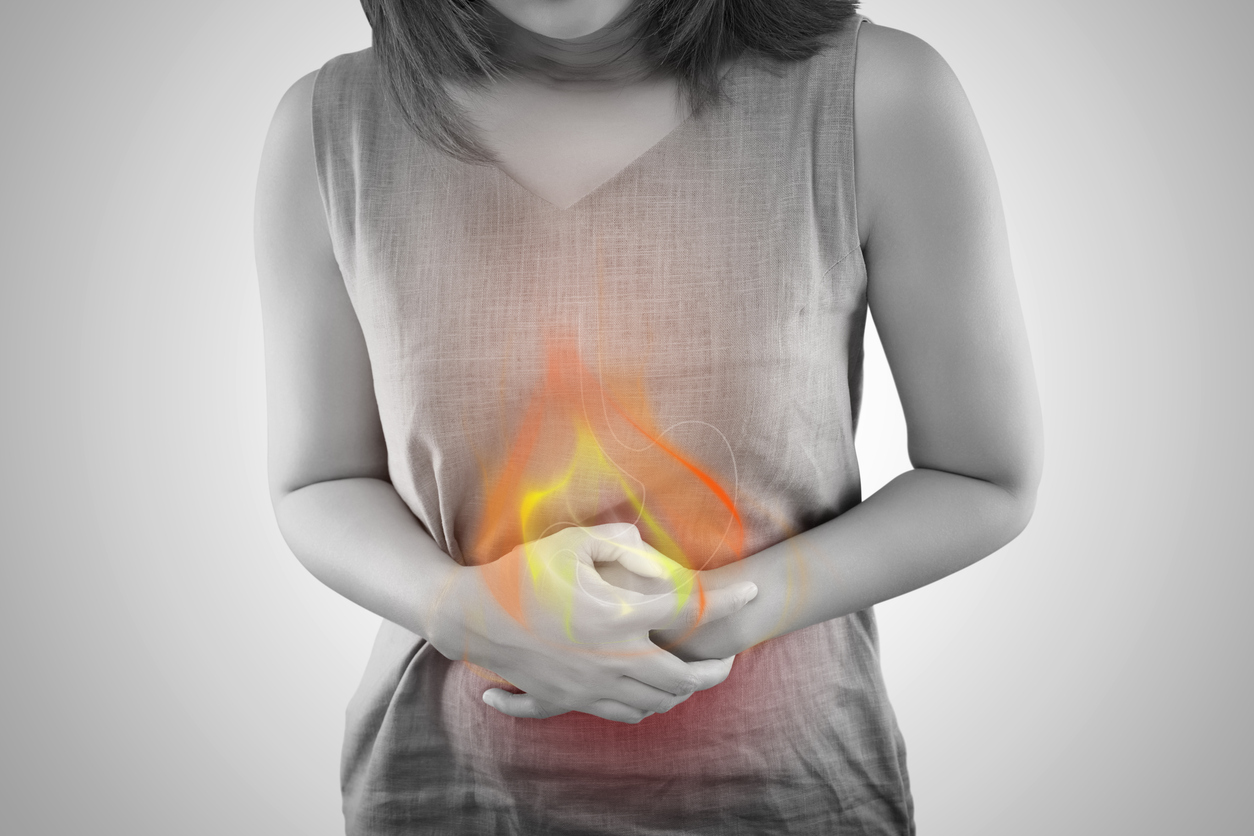Polycystic ovary syndrome (PCOS) has become one of the most common hormonal disorders in women worldwide. Women of reproductive age find themselves in a turmoil with this disorder and the effect it has on various aspects of the body. After your diagnosis of PCOS, your doctor suggests all the therapies that cater to your physical symptoms because they become visible. Seldom do we spare attention to the mental aspect of this disorder and the exhaustion that comes with dealing with the diagnosis and the symptoms. Apart from the metabolic concerns, the psychological concerns need equal amounts of attention. A few research studies state that the frequency of anxiety and depression are significantly higher in women with PCOS and they also carry a higher risk of these problems.
Anxiety and Depression
Anxiety can be described as a constant feeling of worry and fear that clouds over a person’s thoughts. And if not tended to, it can become difficult and persistent too. Women with PCOS can get anxiety because they constantly worry about their body and the symptoms of PCOS causing harm to their health.
In today’s world, depression has become a common mental illness amongst the mass. As common as it is, its seriousness cannot be undermined by the fact that it can very gravely affect the way you think or feel. Patients with a chronic illness such as PCOS have suggestively reported that they have negative feelings and thoughts about their body and health. It reduces your ability to function properly every day.
But then, the question arises.
What is the link between PCOS and mental health?
PCOS is a complex condition that can show up in many ways. Although we often focus on treating its physical symptoms, we often forget the effects it can have on the mental health as well. Since the symptoms of mental health issues are not visible or may not be apparent, it often goes overlooked.
Nearly 40% of women with PCOS suffer from anxiety and depression and there can be multiple causes to it including body image issues, hormonal imbalance and stress of dealing with a chronic condition. Taking care of your PCOS and mental health is an important part of a holistic treatment plan.
Mental health issues caused by PCOS
Mental health issues of PCOS can show up in varying ways. Anxiety, depression, stress are all subtle symptoms of PCOS and mental health. Since such feelings of anxiety and depression can overlap in many other conditions, these symptoms can go overlooked.
Although every woman is different, and the symptoms can show up in varying degrees. If you are experiencing mental health issues, it is important to seek proper medical care.
How and Why Does PCOS Affect Mental Health?
In PCOS, there is an imbalance of hormones that women experience and the symptoms of PCOS can be a big contributor to the poor mental health of these women. The imbalance and abnormality in the levels of hormones such as testosterone can cause physical symptoms such as excess in hair growth (hirsutism), loss of hair (alopecia), weight gain, and really stubborn acne. These symptoms can make women feel anxious and conscious about herself. The way you look and the way you present yourself to the world is affected and is also a reason for low self-esteem. In such circumstances, women with PCOS feel cornered and lonely, and feel frustrated when they feel that they do not fit into the standards of beauty of the society. There is a constant fight within themselves about accepting their diagnosis and symptoms, and the way they are “supposed to look”. This can affect your self-confidence, your moods and even your relationship with people, leading to an increase in the risk of getting anxiety or depression.
Not only do the physical symptoms bother a woman with PCOS, there is also an anxiety that is linked to her ability to conceive. In a culture where there are a lot of expectations tied to the women and their child bearing capacity, many women with PCOS resort to assistive reproductive technologies to get pregnant. The couples who undergo such treatments often feel emotionally and financially drained which just adds to their mental health negatively. These symptoms and limitations can deeply distress a woman with PCOS and increase the risk of getting anxiety and depression along with a few other problems such as an eating disorder or even compulsive disorders.
Effect of PCOS on Mental Health
Apart from the anxiety from the physical symptoms, studies have not revealed any information that can suggest a direct connection between PCOS and mental health. It is therefore necessary to tend to the mental health of a woman diagnosed with a chronic illness like PCOS.
Symptoms
Women with PCOS have reportedly felt frustrated and self-conscious because of the symptoms of PCOS like hirsutism, acne, and infertility. They have felt that with a chronic illness like PCOS, they feel less at control of their life and body in general.
Hormonal Imbalance
Some research studies have tried to shed some light on the connection between the hormonal instability that PCOS patients have with their mental health issues, and tried to understand if they both have any relation.
After a comparison of the hormones such as insulin and testosterone, there have been no concrete results to support these connections.
How to improve mental health with PCOS
The first step to improving your mental health is to talk to a mental health provider to discuss your feelings and understand your mind better. And if you are someone who has noticed a few of these symptoms of anxiety and depression in your friend, be their support and guide them towards better and healthier choices.
Medications and Supplements
Although there have been no studies done to understand if antidepressants or anti-anxiety pills work with the PCOS patients, they may be prescribed to women to improve the symptoms. Metformin, which is usually prescribed for insulin resistance, is often prescribed to women with PCOS to relieve them from anxiety. A few medications that take care of vitamin deficiencies in women, can also be taken to decrease the symptoms of any mental health issue.
Alternative Therapies
Women with PCOS have often felt more relieved and rejuvenated after practicing mindfulness every day for some time. Yoga and its practices such as meditation, poses and guided breathing, have also been prescribed to them and have helped them decrease their symptoms of anxiety and depression.
The mental health of every individual is unique and precious. When you get diagnosed with a chronic illness such as PCOS, it can be difficult to accept the diagnosis and the symptoms. It might feel that you are the only one struggling with this and that is when it is good to seek help. Talk to a close friend. Join a support group. Lean towards therapy proactively. Take care of your health holistically, and don’t let PCOS define you!
Disclaimer: Content on Veera is provided for informational purposes only and is not intended as medical advice, or as a substitute for medical advice given by a physician



















